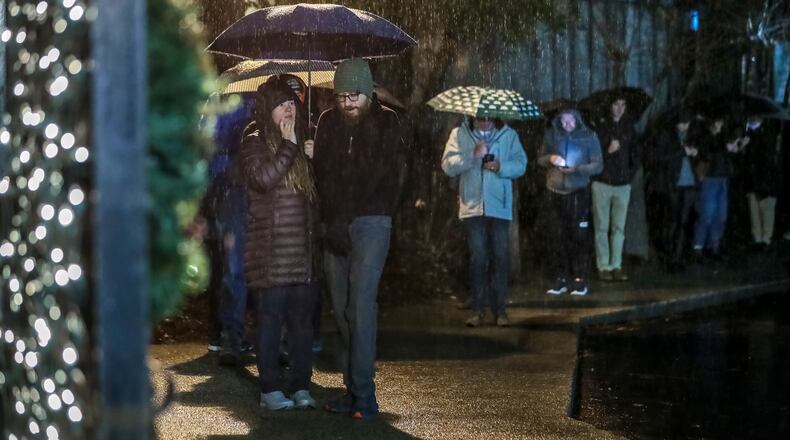A federal judge upheld Georgia’s shortened four-week runoff period mandated by the state’s 2021 voting law, ruling Friday that there wasn’t evidence to prove discrimination against Black voters.
U.S. District Judge J.P. Boulee’s decision keeps in place quick runoffs after general elections and fewer early voting days before runoffs. The ruling also maintains a voter registration deadline 29 days before elections, preventing new voters from being able to sign up ahead of runoffs.
“Plaintiffs presented evidence that Black voters are more likely to vote early. Plaintiffs did not present any evidence, however, which would show why Black voters would disproportionately struggle to vote during the new early voting period,” Boulee wrote in a 31-page order. “... All of the factors weigh against a discriminatory intent finding.”
The ruling is the latest in a series of pretrial court orders that have mostly left Georgia’s voting law intact, with a few exceptions. The Republican-controlled General Assembly passed the expansive law after the 2020 presidential election and U.S. Senate runoffs, restricting absentee ballot drop boxes, allowing mass challenges to voters’ eligibility and requiring additional forms of ID for absentee voting.
Before the law was passed, runoffs were held nine weeks after the general election, with a large turnout of 4.4 million voters resulting in the election of Democrats Jon Ossoff and Raphael Warnock in January 2021 to the U.S. Senate. Runoffs are required in Georgia when no candidate receives over 50% of votes in the initial election.
“This ruling affirms what we have maintained all along — that Georgia’s Election Integrity Act is designed to ensure fair and secure elections for all citizens,” Republican Secretary of State Brad Raffensperger said. “We will continue to stand firm in defending the principles of this legislation.”
During a previous ruling in October, Boulee, an appointee of Donald Trump, also accepted the voting law’s limitations on drop boxes, voter ID, and food and water handouts to voters.
But Boulee has also blocked parts of the law. He prohibited criminal penalties for distributing food and drinks to voters waiting in line as long as they’re outside 150 feet of a polling place, and he barred counties from rejecting ballots of voters who didn’t write their correct date of birth on absentee ballot envelopes.
No trial date has been set for lawsuits contesting Georgia’s voting law.
About the Author
Keep Reading
The Latest
Featured





